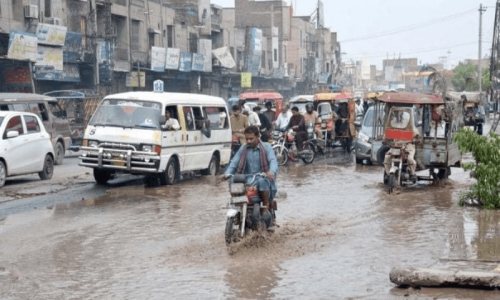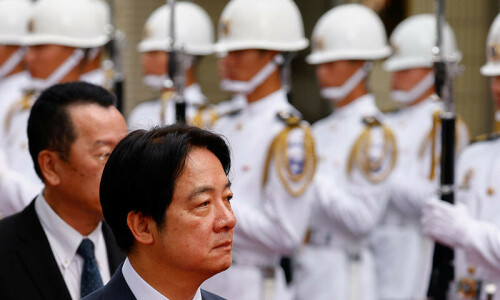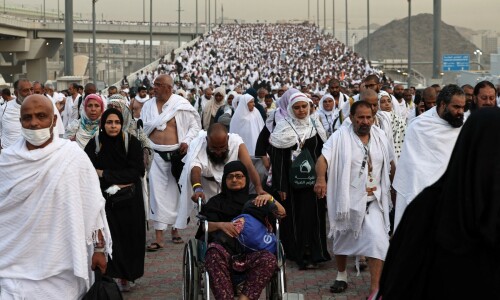WASHINGTON: Pakistan and Afghanistan are working on a joint code of conduct to regulate their cooperation in the fight against terrorists and redress each other’s grievances, says the country’s top diplomat.
Special adviser to the PM on Foreign Affairs, Tariq Fatemi, also said that Pakistan expected the United States to reimburse the expenses it incurred in the fight against terrorists even after the US withdrawal from Afghanistan. The Ministry of Foreign Affairs has advised the PM to attend the UN General Assembly session.
Talking to Dawn, Mr Fatemi said that Pakistan would welcome a meeting between the Indian and Pakistani prime ministers at the General Assembly later this year.
Military operation targeting militants of all shades, US told
This will cover all relevant issues, “such as the complaints made by two sides, border management, enhanced cooperation between the two militaries and their security and intelligence agencies,” Mr Fatemi said.
He said Pakistan would like the United States to continue to reimburse the expenses incurred in countering terrorists along the Pak-Afghan border.
So far, the United States has been reimbursing Pakistan from the Coalition Support Fund set up for this purpose. The fund may expire after the expected US withdrawal from Afghanistan.
“Now if the objectives (of the US-led war against terror) remain unaccomplished for another year or two and if Pakistan continues providing that service, we will expect reimbursement of those expenses,” said Mr Fatemi.
He denied a US media report that Pakistan had asked the United States to re-evaluate its withdrawal plan, because the objectives of the war against terror had not yet been achieved.
The US troops were deployed in Afghanistan under an arrangement with the two countries and “it is not for us to comment on how long they should or should not stay”, he said.
“The government of Pakistan has not stated either privately or publicly any preference as regards the stationing of US troops,” he added.
The US media, however, quoted a senior Pakistani defence official as telling reporters that Islamabad had asked Washington to re-evaluate its withdrawal schedule.
US urged to support operation even after pullout from Afghanistan
Mr Fatemi refused to speculate if a longer US stay in Afghanistan would facilitate Pakistan’s military offensive or it would have been better to launch the operation in 2010 when the Americans still had a few years in Afghanistan.
The adviser said the offensive would continue till the main objective of eliminating terrorism was achieved.
“No discrimination or distinction will be made as regards to the nationality, ethnicity and political affiliation of the militants. All militants are targets and this operation will continue as long as the objective is not achieved.”
Mr Fatemi explained that in the second phase, the focus would be on reconstruction and on the massive task of resettlement of refugees.
“This is a long, arduous and expensive exercise but an exercise that has to be undertaken if the country was to re-emerge as a moderate, modern, progressive state,” he said.
Commenting on recent US media reports that Pakistan allowed militants of the Haqqani network to escape Fata, Mr Fatemi said a military operation of such a massive scale could not be launched in a vacuum.
“People can see movement of troops and other elements of the operation. It is true that many people have fled but as a matter of policy it was very clearly stated that all militants and terrorists, irrespective of their colour and nationality, will be targeted,” he explained.
Mr Fatemi said that in order to ensure that all militants were eliminated; Pakistan had requested Afghanistan to catch, and when possible, eliminate militants on its side as well.
“This kind of reciprocal action on the other side of the international border is essential to achieve the shared objective of defeating terrorism,” he said.
Mr Fatemi said that the policy of interference in the affairs of other countries had never benefitted anyone and it’s about time those in South Asia also realised this and made “a paradigm shift” in their policies.
He said that during a recent visit to Afghanistan by the Afghan national security advisor, the two sides agreed to form a joint working group to examine each other’s grievances and to take steps to redress them.
Published in Dawn, July 22nd , 2014













































